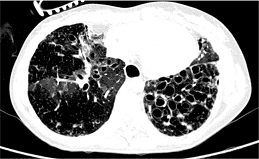
MarÃa Amparo Lopez-Ruiz
CEU Cardenal Herrera University, Spain
Title: Neuroleptic-Induced Oral-Facial Tardive Dyskinesia in a Prepuberal Boy with an Attention-Deficit Hyperactivity Disorder
Biography
Biography: MarÃa Amparo Lopez-Ruiz
Abstract
The use of antipsychotics, antagonists of dopamine D2 receptors in the treatment of ADHD in children needs further revision given the incidence of side effects of unknown frequency as tardive dyskinesia and acute extrapyramidal symptoms, both induced by haloperidol and the fact that overdose can produce dangerous morbidity, sometimes even requiring intensive care treatment . Patients receiving neuroleptics such as butyrophenone Haloperidol for a long period of time can develop several forms of a rare side effect included among the extrapyramidal dyskinetic syndromes, especially oral- facial involuntary movements as well as uncontrolled movements of the extremities called tardive dyskinesia.

We present a case of tardive dyskinesia, the most frequent group of involuntary movements in patient taking haloperidol.
Case report: An 11-year-old male patient taking a high dose of haloperidol and methylphenidate in a normal dose for two years was hospitalized due to the severity of the symptoms and eventually the child developed a syndrome of tardive dyskinesia.
Upon admission, medication was stopped and the symptoms disappeared in the next 24 hours. Three days later the boy recovered completely and was discharged from the hospital to follow treatment in the outpatient clinic. There were no recurrences of the dyskinetic reactions during that summer.
Conclusions: Given the possibility of presentation of tardive dyskinesia and other acute extrapyramidal symptoms, we strongly recommend avoiding the prescription of haloperidol, especially associated to methylphenidate (also responsible for some cases of tardive dyskinesia) in the treatment of Attention-Deficit Hyperactivity Disorder (ADHD)

